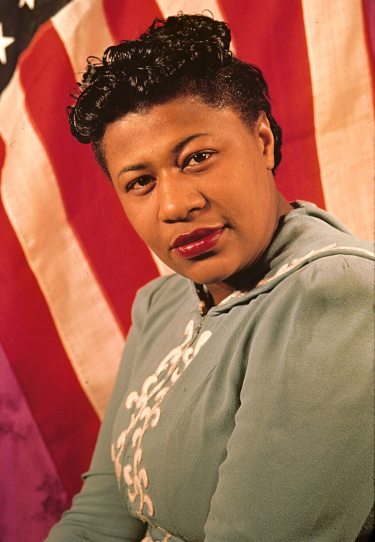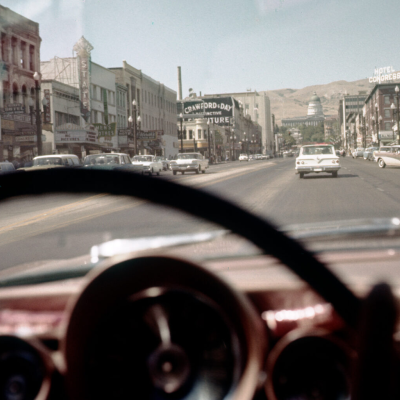_____
Pianist Joe Sample — who died on September 12 at the age of 75 — was a critical link to both the glories of hard bop and the perils of smooth jazz. His career will principally be remembered as a founding member of the Jazz Crusaders (ultimately just “The Crusaders”), a band he described as being “fathers of jazz-funk-fusion.” While his musical contributions are noteworthy, I also remember him for an altogether different reason.
In 1974, the Crusaders were all over the radio. In the San Francisco Bay area (where I lived at the time), their music — particularly their arrangement of Carole King’s “So Far Away” and a sweet ballad called “Way Back Home” — was in heavy rotation on the adult contemporary formatted KSFO-AM as well as on the era’s progressive radio giant KSAN-FM. In record industry parlance, they had “crossed over” into multiple formats. The Crusaders were “huge.”
In addition to being an important musical influence during my early record collecting days — when I was being introduced to jazz music and the soul of its culture — the Crusaders played an odd role in my decision to turn away from pursuing a career in writing.
I was 20 years old in 1974, basically out of school but passionate about writing. To that end, I contributed reporting and feature writing for a couple of community newspapers, one of which was an “underground” bi-weekly, the San Francisco Phoenix, whose main goal, as I recall, was to compete with the entrenched Bay Guardian (and to a lesser extent the Berkeley Barb) by publishing from a severely “leftist” perspective.
At the time, the Bay area was in the thick of the news because of the kidnapping of the 19-year-old San Francisco newspaper heiress Patricia Hearst by a leftist/anarchist group known as the Symbionese Liberation Army (S.L.A.). The group had a variety of political intentions and robbed banks to finance them. (Innocent people were shot and one killed during two of these robberies). The shock of Hearst’s kidnapping was compounded when she appeared in a photo ostensibly assisting the S.L.A. in a bank robbery. She had also denounced her parents on audiotapes the group delivered to the media, seeming to complete an almost unfathomable radical transition from coquettish newspaper heiress/college coed to leftist terrorist. It was a sensational story that went on for months, and like the rest of us living by the Bay, I followed it pretty closely.
One evening during this tumultuous time, the Crusaders played Berkeley’s Greek Theater, an outdoor performance venue on the University of California campus that over the years has featured speeches by generational leaders, been the site of many a pre-game football rally, and played host to some of the greatest performers in music. In anticipation of the concert, I told the publisher of the Phoenix that I would like to review the show for the paper. He agreed, and off I went to the Greek, memo pad and pencil in hand, flush with enthusiasm for reporting on one of the most polished acts in popular music.
The Phoenix had no backstage credentials (and I am sure I paid for my own ticket), so I was seated up above the stage about 100 feet from the band, with a clear view of Sample and band mates Stix Hooper, Wilton Felder, Wayne Henderson, and “guests” Larry Carlton and Max Bennett as they laid down the incredibly stylish and lush sound (call it “smooth”) associated with their success. I made notes about the songs being played, and spun completely amateurish observations about the quality of each performance. I was totally into it!
About mid-performance, between numbers, there was a ruckus caused by a guy who had climbed on to the stage, grabbed the microphone from Sample’s piano, and yelled into it; “Play ‘Way Back Home’ for the brothers and sisters of the S.L.A!” He was immediately seized by theater security and, among much murmuring from the band and audience, quickly hustled off stage. Sample’s microphone was replaced, order was restored, and the concert continued. While I made minor note of this most unusual song request, I decided there was no reason to include it in my concert review.
A day or two later, I made the drive into San Francisco from Berkeley and delivered my piece to the publisher’s Market Street office. (He weighed about 300 lbs. and greeted me at the front door wearing only his sullied “tighty-whitey” underwear). He asked me how the concert was and I told him a little about it, and casually informed him about the unusual audience member request for “Way Back Home.” I left rather hurriedly, but not before taking a couple records from his office to review for a future edition.
A few days later the Phoenix hit the stands. I was new to this “being published in a newspaper” thing, and it was a big thrill to find the paper in a Telegraph Avenue newsstand. I grabbed a copy and rifled through it quickly in search of my review. There it was on about page 40, 250 or so words no doubt buried between an advertisement for a North Beach “masseuse” named “Lola” and “Men in Search of…” personals. My piece had understandably been cut and edited to fit the space, but, midway through it the publisher had inserted, under my byline, a sentence that read something like this: “At one point during the concert, a fan of the S.L.A. and the Crusaders stormed the stage and urgently demanded that the band play the S.L.A.’s theme song, ‘Way Back Home,’ for the brothers and the sisters of the S.L.A!”
I was shocked. Livid. Incensed. How in the world did my desire to write about the music of the Crusaders morph into my reporting to the world that the S.L.A. had a “theme song”?
Disgruntled and embarrassed by this hack job, for awhile I kept it to myself and the eight-or-so readers of the Phoenix, but eventually found the courage to show the piece to my folks, who were quite displeased that their youngest son had been used by the publisher in this way. At their urging I called him, told him I was pissed, and he responded by telling me to practice a quite common method of self-conception (as well as to find a new place to write my “shitty little reviews,” which I never did).
I listened to “Way Back Home” several times while writing this entry today. It is hard to fathom a piece as warm and beautiful as this being a “theme song” of a criminal political cult. I also listened to “So Far Away” and “Hard Times” and “Scratch” and several other tunes the Crusaders recorded at that time, and while doing so I was reminded that this music Joe Sample was a central character in was part of the soundtrack to an important time in my life, when I imagined myself “living the life of a writer.” Funny, I guess, how I so easily let the actions of the Phoenix publisher lead me away from this creative trail — ultimately ending up in the record business instead.
With the benefit of 40 years of hindsight, I suppose I could have been more mature about it all. Was this publisher’s action really all that bad? So bad to cause me to become so completely disenchanted with a profession I had dreamed being a part of since I was a little kid? Indeed, maybe it was, given the climate for the Hearst/S.L.A. story at the time, newsworthy?
It could be that I was lazy at the time and may have been looking for an excuse not to have to write, or it could be that I lacked the confidence the pursuit of a story requires. Both could be true, but for now I prefer to conclude that I made the decision to walk away because I didn’t want to work in a profession where obese publishers answered the door to their office wearing only their sullied underwear.
__________

A December, 1972 edition of the San Francisco Phoenix
*
While writing this piece, I searched for “San Francisco Phoenix” in hopes of being reminded of the publisher’s name. While I was unsuccessful, I did find the cover of a 1972 issue (above), as well as this interesting and quite ironic description of the paper:
“Bi-weekly underground newspaper, started in September 1972. Ceased (in January 1975) after it was allegedly linked to Patty Hearst’s kidnapping by the murderous Symbionese Liberation Army.”
__________
Read Peter Keepnews’ New York Times obituary of Joe Sample
*
The recording of “Way Back Home”
The recording of “So Far Away”
A 2003 performance of The Crusaders playing “Way Back Home”








































This writing business has continually been a miserable occupation from day one. And unless you’re Ernest Hemingway or Marquez, there are few rewards, and even then, Hemingway ended up killing himself. But if you are, you are.